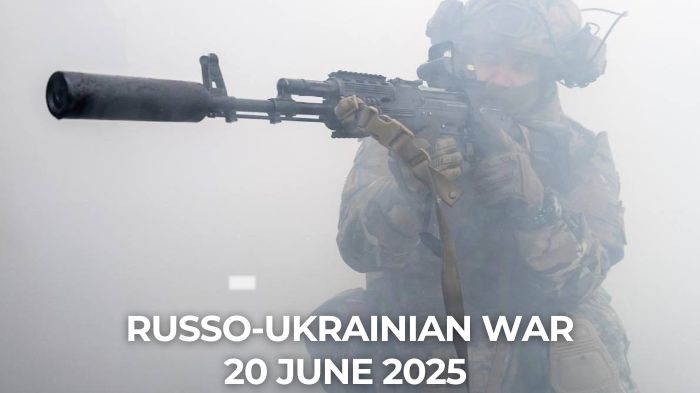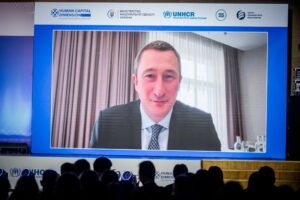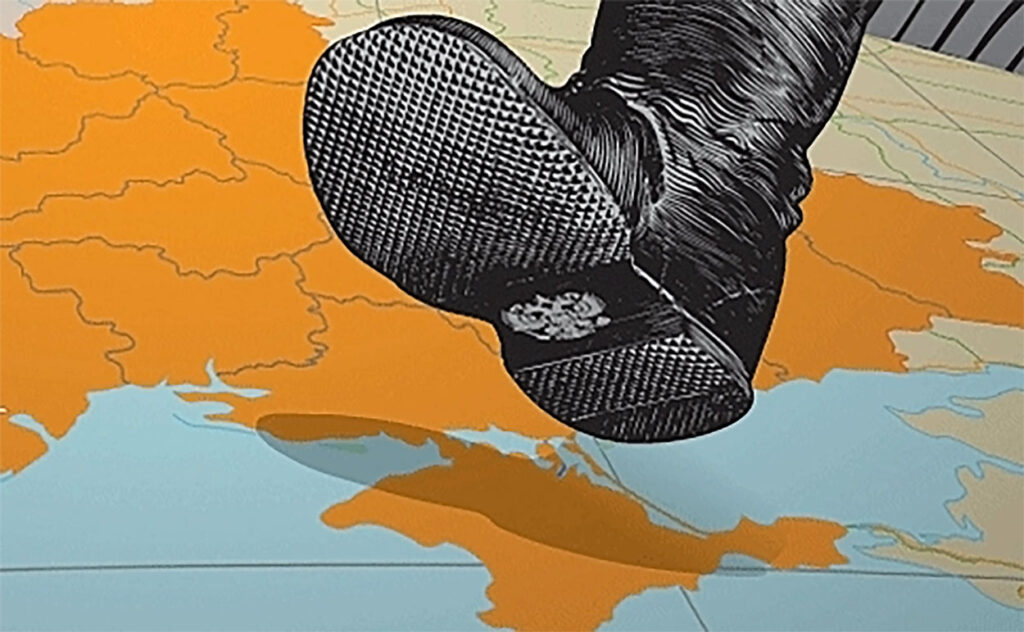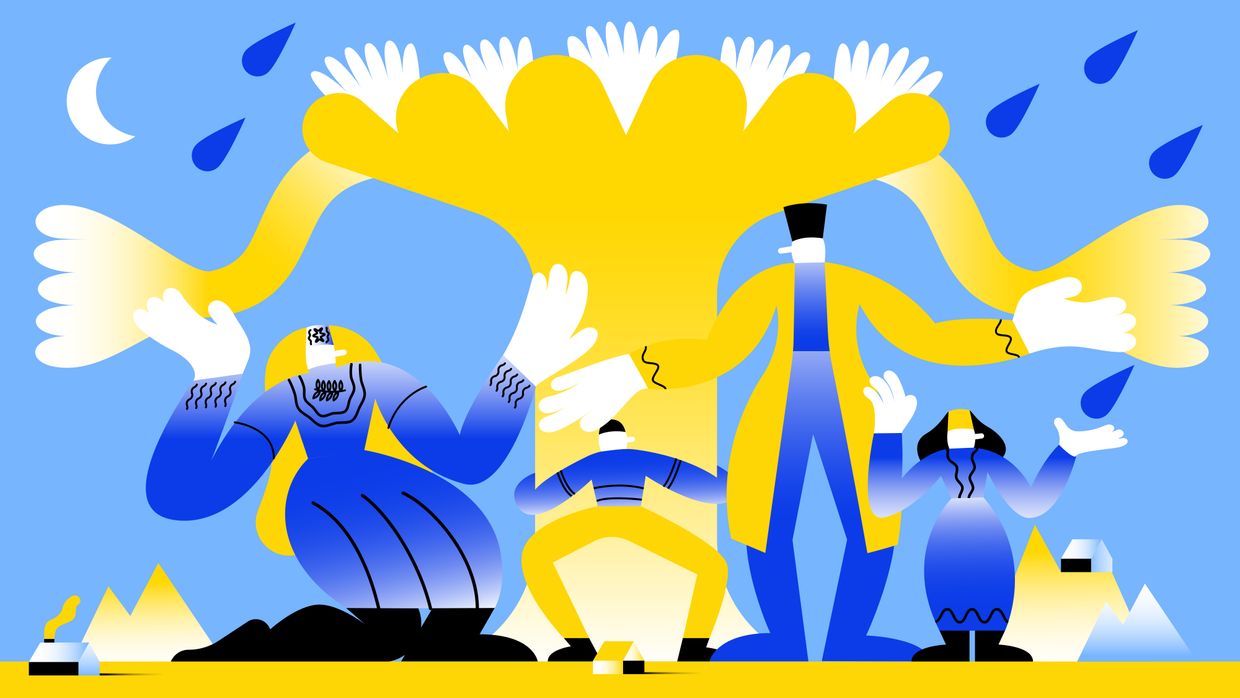Russo-Ukrainian war, day 1213: Putin declares all of Ukraine Russian

Exclusive
 |
Ukraine’s 60-year-old Leopard tank switched from sniper mode, and Russian troops never saw it coming. They’re old. But Ukraine’s Leopard 1A5 tanks are back in the fight—because when you’re defending a place like Kostyantynivka, you use whatever still shoots straight. |
 |
Russia legally steals 20,000 homes in razed Mariupol — then charges homeless victims for rent. Survivors of Putin’s most brutal siege now face a deadlier trap: a rigged paperwork leaving them “homeless bums” whose stolen homes are sold to Moscow buyers. |
 |
Ukraine says it’s fighting corruption. But Deputy PM Chernyshov left the country—and hasn’t come back. Last week, Oleksiy Chernyshov left Ukraine on “official business.” Since then, two of his former aides have been arrested. He hasn’t come back. |
Military
As Kyiv buries dead after biggest Russian attack of war, Kremlin says: “We’re advancing and will keep going”. Putin demands Ukraine stop receiving weapons while importing drones and missiles from Tehran and Pyongyang.
Russian soldier ate his comrade — Moscow’s troops spiral into madness in Ukraine’s trenches. A soldier called “Brelok” killed and ate his fellow Russian, then died himself — just “something to think about,” his commander says.
ISW: Putin’s victory plan hinges on Western fatigue and Ukrainian collapse. The think tank outlines Moscow’s unchanged core goals: a pro-Kremlin Ukraine and weakened NATO.
Russia reportedly hides its own war dead in Ukraine’s body swaps. Kyiv says Moscow is slipping its own soldiers into exchanges meant for fallen Ukrainians, complete with uniforms, dog tags, and ID papers, possibly to dodge compensation to Russian families.
Intelligence and technology
Raytheon’s production lines overheat as Europe lines up for 1,000 Patriot missiles and Ukraine pleads for speed. Joint production and faster transfer talks gain urgency as Russia refines its missile arsenal.
Ukrainian air-defense drones evolve rapidly to counter Russia’s growing Shahed swarm threat.
Three Ukrainian companies make top 100 list of unmanned systems innovators. Ukraine’s TAF Drones, Ukrspecsystems, and Airlogix secure prestigious spots on the world stage, showcasing rapid growth and cutting-edge technology.
International
Argentina uncovers suspected Russian spy network linked to disinformation efforts. The identified group allegedly developed content to sway political narratives favorable to Russia.
Le Monde: Obama held back on Ukraine, Biden hesitated, now Trump embraces Putin. As Trump aligns with Moscow, European capitals brace for a new era of geopolitical uncertainty and strategic detachment.
Russia shields Iran’s nuclear ambitions, Zelenskyy warns. Ukraine’s president calls Moscow’s alignment with Tehran and Pyongyang a dangerous signal of rising global threats.
Zelenskyy’s top man Yermak is “bipartisan irritator,” US insiders warn Politico. The Ukrainian President Office chief’s abrasive style and vague agendas are testing US support for Ukraine at a fragile moment, sources told Politico.
US strike on Iran could force Moscow to imagine what real strength feels like, says expert. The Kremlin respects only power — and it’s watching the Middle East war especially closely.
Humanitarian and social impact
Inside occupied Crimea: torture, disappearances, and total suppression of dissent. A Freedom House report sheds light on systematic abuses in Russian-occupied Ukrainian territories.
He endured what most wouldn’t survive: Ukraine returns its 60-year old warrior from Russian captivity. He spent years in a Russian cell and still made it back.
Iran’s missiles kill 7-year-old Ukrainian girl seeking leukemia treatment in Israel. Nastia Buryk from Odesa died alongside four family members as an Iranian missile struck their apartment.
Rescuers among the injured as Russia again targets civilians in Odesa and Kharkiv. A collapsing structure wounded three firefighters in Odesa during intense operations to save residents.
Russia kills Ukrainian civilians on unprecedented scale since Trump’s peace efforts, while West debates sanctions in slow motion. With no pressure, Russia turns every negotiation into a smokescreen.
Political and legal developments
Putin declares all of Ukraine Russian as Trump claims Kremlin wants peace. Russia shows its aim is subjugation, not negotiation.
Netherlands becomes seventh nation to recognize soviet-era Crimean Tatar deportation as genocide. The Dutch House of Representatives declared the Soviet Union’s 1944 deportation of Crimean Tatars constituted genocide, joining six other nations in formally recognizing Stalin’s forced removal of over 190,000 people from the peninsula.
Latvia bans Russians from buying property, calling it hybrid warfare threat. Latvia banned property sales to Russian and Belarusian citizens after parliament declared such transactions constitute “hybrid warfare” instruments, passing the measure in its conclusive reading 19 June.
Ukraine’s anti-corruption star Denys Bihus confirms intelligence work after MP leak. Ukraine’s top investigative journalist says he helped intelligence services — but denies it compromised his reporting or gave him special treatment.
Read our earlier daily review here.
You could close this page. Or you could join our community and help us produce more materials like this.
We keep our reporting open and accessible to everyone because we believe in the power of free information. This is why our small, cost-effective team depends on the support of readers like you to bring deliver timely news, quality analysis, and on-the-ground reports about Russia's war against Ukraine and Ukraine's struggle to build a democratic society.
A little bit goes a long way: for as little as the cost of one cup of coffee a month, you can help build bridges between Ukraine and the rest of the world, plus become a co-creator and vote for topics we should cover next.
Become a patron or see other ways to support.



